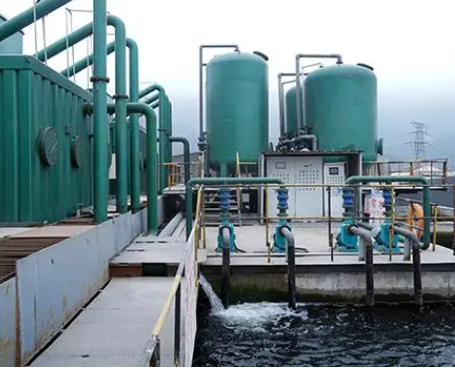Types of pumps used in chemical industry wastewater treatment
There are many types of water pumps used in chemical industrial wastewater treatment, and each pump has its specific application scenarios and advantages. The following are some common types of water pumps used in chemical industrial wastewater treatment:
1. Centrifugal pump
Features: Centrifugal pumps are one of the most widely used pumps in wastewater treatment. They are easy to install in pits and sump pits, and can effectively transport suspended matter present in pollutants. Centrifugal pumps generate centrifugal force by the rotation of the impeller, sucking the fluid from the center of the pump and throwing it out in the tangential direction, thereby achieving the purpose of conveying fluid.
Application: Suitable for treating clear water or low-concentration sewage, and can be adjusted to adapt to a variety of applications, including conveying other materials from chemical slurries to oils and solvents.
2. Sewage pump
Classification: Sewage pumps are mainly divided into two types: centrifugal sewage pumps and submersible sewage pumps.
Features: Sewage pumps have the characteristics of simple structure, stable operation, corrosion resistance, etc., and are particularly suitable for pumping liquids such as chemical sewage.
Application: Widely used in sewage treatment in chemical plants, used to extract and treat wastewater containing various pollutants.
3. Submersible Mixing and Stirring Pump
Features: Submersible mixing and stirring pump is an important equipment in wastewater treatment of chemical plants. It has the characteristics of submersible working, can effectively mix and stir the sludge in the wastewater, and evenly distribute it in the treatment equipment.
Application: It not only improves the efficiency of wastewater treatment, but also helps to improve the quality of treated water.
4. Screw Pump
Features: Screw pump is suitable for wastewater with high concentration or containing solid particles. It conveys fluid through the rotation and meshing of the screw and has good adaptability to solid particles.
Application: In the treatment of chemical industrial wastewater, especially when treating wastewater containing a large amount of solid particles, screw pumps perform well.
5. Booster Pump
Features: Booster pump is mainly used to push water flow into the filter and form a certain water pressure in the filter, so that it can effectively filter impurities in the wastewater. Booster pump has the characteristics of high working efficiency, stable performance and low noise.
Application: In the process of wastewater treatment in chemical plants, booster pump is one of the important equipment to ensure the filtering effect.
6. Metering dosing pump
Features: Metering dosing pumps are used in chemical industrial wastewater treatment to accurately control the amount of chemical agents added to ensure the treatment effect. These pumps usually adopt reciprocating or diaphragm structures, which can accurately measure and transport liquid medicine.
Application: Metering dosing pumps play an important role in adjusting the pH value of wastewater, disinfection, etc.
7. Self-priming slurry pump
Features: Self-priming slurry pumps have a self-priming function, which can form negative pressure in the pump body, suck liquid into the pump and transport it out. This pump is particularly suitable for treating wastewater containing a large amount of suspended particles and sticky substances.
Application: In chemical plant wastewater treatment, self-priming slurry pumps can be used to transport wastewater containing sludge and particulate matter.





